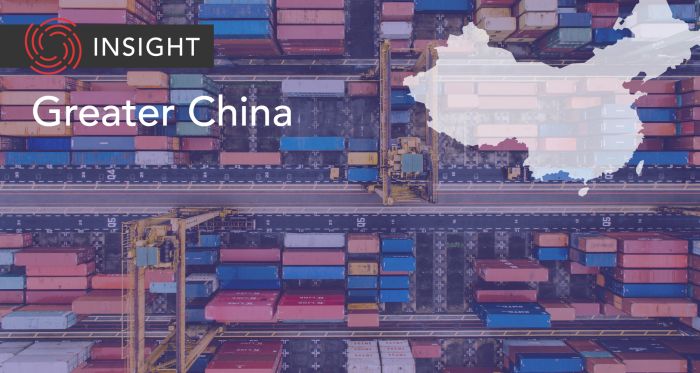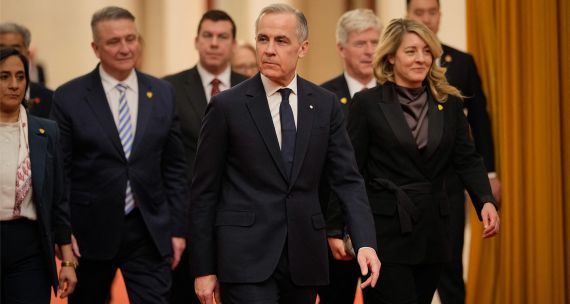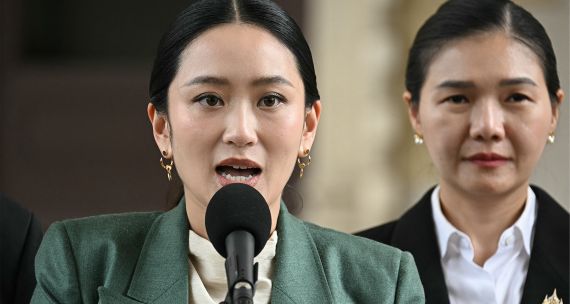The Takeaway
From November 5 to 10, Shanghai welcomed 3,400 exhibitors from 69 countries to the annual China International Import Expo (CIIE), one of the country’s most important trade fairs. The event saw attendance return to pre-pandemic levels and a record number of booths from Fortune 500 companies. The CIIE was largely a diplomatic success in Beijing’s books, but all eyes were on the U.S. as Washington sent its strongest-ever delegation, featuring the U.S. ambassador to China and a coterie of high-ranking civil servants.
In Brief
On November 5, China kicked off one of its highest-profile trade fairs, the CIIE, at the National Exhibition and Convention Center in Shanghai. During the six-day event, the expo welcomed 394,000 professional visitors, which marked a return to pre-pandemic attendance levels. Canada was represented at the fair by big names like Canada Goose, as well as smaller players in sectors like agriculture and health supplements. All in, a record-high 289 industry-leading companies — many of them Fortune 500 companies — participated in the expo, representing industries such as science and technology, automotive manufacturing, mining, agri-food, and shipping.
Chinese Premier Li Qiang delivered the keynote speech at the CIIE’s opening ceremony. In his remarks, Li stressed the huge potential of China’s market demand — noting the country’s 400-million-strong middle class — and vowed to expand market access for importers and protect the rights of foreign investors. Other notable speakers included Rebeca Grynspan, secretary-general of the United Nations Conference on Trade and Development, who highlighted the need for “healthy competition” in a multipolar world, and Australian Prime Minister Anthony Albanese, who vowed to “work constructively” with China.
The CIIE debuted in 2018 after Chinese President Xi Jinping personally proposed the creation of the world’s first import-themed national-level expo. Co-hosted by China’s Ministry of Commerce and the Shanghai municipal government, the event partners with the World Trade Organization and the United Nations to welcome guests from more than 100 countries. This year’s CIIE, themed around smart tech and carbon neutrality, was the first to be fully held in-person since the start of the COVID-19 pandemic in 2020. Prior to the event’s opening, however, the European Union Chamber of Commerce in Shanghai labelled the CIIE as nothing more than a “political showcase,” and called on China to introduce more tangible measures to restore trade ties.
Implications
Despite some criticism, the CIIE was a major diplomatic success for Beijing. With record-breaking attendance rates, the event left a positive impression on foreign guests and domestic visitors alike. Preferential policies for exhibitors from least developed countries — such as construction subsidies, preferential tax policies, and the provision of free booths — served to attract non-Western businesses to the Chinese market and bolster Beijing’s image as a global leader that advocates for “win-win co-operation.” The event comes as China tries to reverse a historic decline in foreign direct investment (FDI) flows into the country. Beijing also hoped to use the CIIE to repair relations with its trade partners in the developed world, and for the most part, it succeeded.
While Washington and Beijing were at odds for most of 2023, U.S. companies dominated the CIIE stage, continuing their trend of ranking first in total exhibition space. The presence of U.S. chip giants like Intel, Qualcomm, and Micron did not go unnoticed, with the Chinese state-backed tabloid Global Times writing, “despite Washington's restrictions on China's chip industry, these companies are determined to use this exceptional opportunity to expand their presence in the colossal market.” While Intel and Qualcomm have showcased products at the CIIE since the trade fair’s inception, this year marked Micron’s first year hosting a booth. The Idaho-based tech firm failed a cybersecurity review by China’s cyberspace regulator in May, leading Beijing to partially bar operators of key infrastructure from buying the firm’s products.
The official U.S. presence at the CIIE was also unprecedented. Washington sent its strongest-ever delegation, with U.S. Ambassador to China Nicholas Burns leading the group alongside high-ranking officials from the Department of Agriculture. China is the U.S.’s largest export destination for agriproducts, and the department, vying to push exports even higher, co-hosted the U.S. pavilion with the American Chamber of Commerce in Shanghai, making it “the first time that the U.S. government participated in CIIE.” Washington’s strong presence at the event mirrored the friendlier tone exhibited by U.S. President Joe Biden and Xi during the pair’s meeting on the margins of the Asia-Pacific Economic Cooperation Leaders’ Summit in San Francisco. Vowing to increase U.S.-Sino co-operation on AI, drug control, and defence, these recent diplomatic developments from Biden and Xi signal a warming in “the most important bilateral relationship in the world.”
What's Next
- Beijing thaws tensions as FDI inflow hits historic low
Beijing used the CIIE as a platform to strengthen ties with new and traditional economic partners. With Australia already signalling a willingness to move on from past differences, all eyes turned to the U.S. delegation, which made it known that Washington “does not favour a decoupling” and instead aims to “expand trade with China in those areas that do not affect [its] national security interest.”
- Uncertainties remain for foreigners doing business in China
While the CIIE confirmed China’s commitment to international trade and engagement, the uncertainties that still plague its economy — weak domestic consumption, poor investor confidence, and a lagging property market — threaten to derail Beijing’s progress. Despite recent policies aimed at alleviating regulatory concerns for foreign companies, so long as national security regimes prevail and geopolitical tensions escalate, some investors will remain skeptical about Beijing’s willingness to truly ‘open up.’
• Produced by CAST’s Greater China team: Maya Liu (Program Manager); Karen Hui (Analyst); and Chloe Yeung (Analyst). Edited by: Ted Fraser. Design by: Chloe Fenemore.




